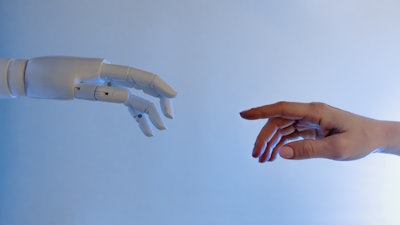In 2019, Dr. Jinho Choi, associate professor of computer science at Emory University, noticed more of his students were struggling with mental health. One day that year, a student confided in Choi that he was suicidal and had been receiving psychiatric treatment. The student said he felt lost and alone. Choi worried about what else he could do and noticed something else.
“I tried to help my students, but I don’t believe they tell me everything — and for good reason,” says Choi. “I’m not accessible all the time. And as much as I want to be close to them, I am an instructor. Yet I saw that some students deep in depression or anxiety sometimes did not want to talk to a human. But they were okay talking to a computer.”
Choi studies natural language processing, which involves teaching robots to talk and text like humans. When he heard some of his students who grappled with mental illnesses were readily turning to computers, seeing them as non-judgmental and less anxiety-inducing, he wondered if an artificial intelligence (AI) enabled chatbot could help them.

With computer science graduate students, Choi built an AI-enabled bot called Emora, which can hold nuanced, human-like conversations with people. Emora’s team last year won first place in Amazon’s Alexa Prize Socialbot Grand Challenge, a national competition among university students to build chatbots. The bot is not yet sophisticated enough to be used as mental health support for students, though Choi hopes it will get there. The robot’s slogan, after all, is “Emora cares for you.”
“We want people to know it’s not just a bot trying to talk to you, but that the people developing this technology care about you,” says Choi. “We tried to use tech as a way to get involved in people’s lives in some way. We don’t see any of their personal information, but we can still program the bot in a way that can help.”
Providing additional support















